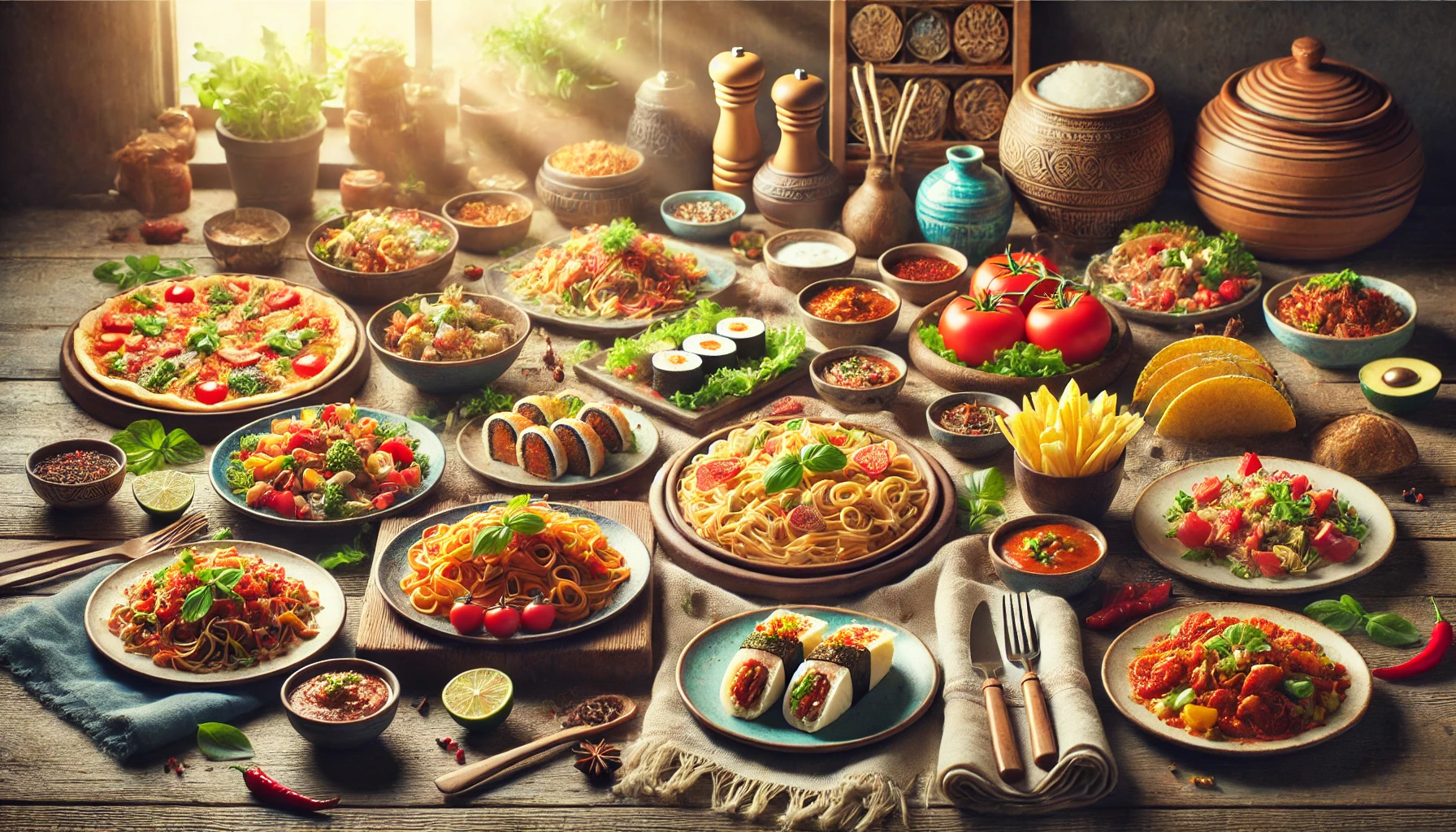The Universal Language of Food: How Cuisine Connects Cultures and People

Food is more than just sustenance; it is an expression of culture, history, and creativity that brings people together. Whether it’s the tantalizing aroma of Indian spices, the comforting warmth of Italian pasta, or the delicate flavors of Japanese sushi, food connects us in ways few other things can. Let’s explore why food is such a significant part of our lives and how it serves as a bridge across cultures and generations.
1. Food as a Cultural Identity
- Historical Roots: Every dish tells a story. Take biryani, for example, a dish with roots that trace back to Persian and Mughal influences. Each region in India has its own version, reflecting local flavors, spices, and traditions.
- Culinary Heritage: Food preserves traditions and keeps cultural identity alive. When we make recipes passed down through generations, we’re honoring our heritage and sharing it with others.
2. The Power of Food in Social Connections
- Celebrations & Gatherings: From weddings to festivals, food is central to all celebrations. It acts as a catalyst for connection, bringing family and friends together.
- Breaking Barriers: Sharing a meal is an act of goodwill that transcends language and cultural differences. Eating together fosters a sense of community and unity that goes beyond borders.
3. The Art of Fusion Cuisine
- Blending Flavors: Fusion food has allowed for exciting combinations of flavors and techniques from various cultures. Think of Mexican-inspired sushi rolls or Indian-spiced tacos. Fusion food celebrates diversity and brings a fresh, innovative perspective to traditional dishes.
- Creativity in the Kitchen: Fusion is about more than just combining ingredients; it’s about combining ideas, honoring different culinary traditions, and finding harmony in unexpected places.
4. Food and Wellness
- Mindful Eating: In many cultures, food is tied to mindfulness and gratitude. Practices like eating slowly, savoring flavors, and recognizing food’s journey to the plate add a sense of purpose and wellness to our meals.
- Health and Tradition: Many traditional diets, such as the Mediterranean and Indian diets, emphasize whole foods, vegetables, and spices that support a balanced, healthy lifestyle.
5. Sustainability in Food Choices
- Supporting Local: Eating local is a movement that brings us closer to the origins of our food. When we buy from local farmers and markets, we support our communities and reduce the carbon footprint associated with transportation.
- Mindful Consumption: Sustainable food practices encourage us to think about the impact of our food choices. By minimizing waste, consuming seasonal produce, and exploring plant-based options, we contribute to a healthier planet.
Food: A Journey of Discovery
Each dish, whether traditional or experimental, brings a unique experience and an opportunity to learn about different cultures and people. Food opens doors, builds connections, and provides a platform to share stories and experiences. So next time you’re cooking or enjoying a meal, remember that you’re partaking in something universal, yet beautifully diverse. Let’s celebrate food as more than just nourishment, but as a powerful force that brings us all together.
Got any foodie wisdom or cooking tips to share? We’d love to hear it—spill the beans and inspire us all! 🍳✨
Hello
We see that your website doing bad in search reasults also is not detected by google AI, we could get your website rank on TOP3 in google in short period at low cost, as we have team in cheap low cost country, so our prices are very low. Please contact us on Whats app: +48 886 181 382
Thank you for your sharing. I am worried that I lack creative ideas. It is your article that makes me full of hope. Thank you. But, I have a question, can you help me?
Can you be more specific about the content of your enticle? After reading it, I still have some doubts. Hope you can help me.
o3yck5